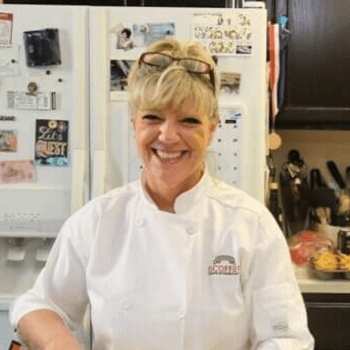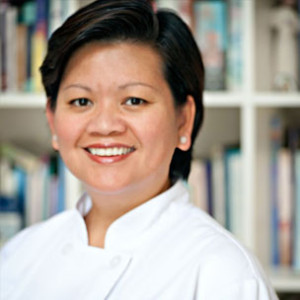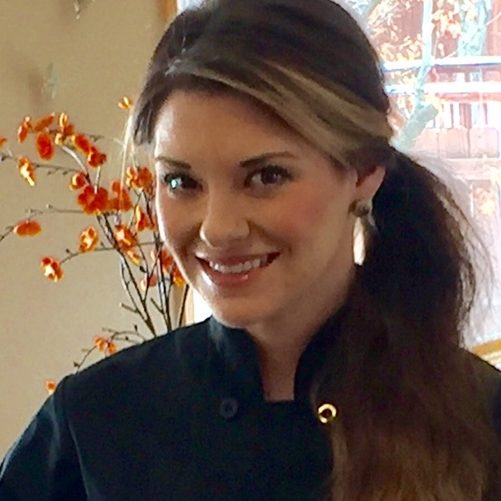Perhaps you have the seed of a dream: you imagine yourself in a restaurant kitchen with people shouting, “Yes, chef!” in response to your orders, or you can smell the sweet aroma of the beautiful pastries you’ve created at a bakery.
But how do you start transforming your culinary dreams into realities?
If culinary school sounds like a good option for you, you likely have a lot of questions about choosing the right one. How do you know what makes for a good culinary arts curriculum?
Here are 7 tips for choosing a culinary school:
1. Find a School With a Well-Rounded Curriculum
After you graduate, you can benefit from having technical skills as well as a wide range of culinary knowledge that shows off your preparation and respect for the field. A well-rounded culinary school curriculum can afford you more career options.
Students at Escoffier can acquire technical, professional, and some business skills in the various Culinary Arts programs.
That means they may receive instruction on cooking methods, knife skills, seasoning, pastry techniques, plating, and flavor profiles (technical skills); they can gain real-world experience in an industry externship (professional skills); and they can explore starting a business plan, calculating profit and loss, and managing foodservice operations (business skills).
Students can study different cuisines from around the world. Depending on the program, they can dive into the business side of the industry, including professional communication, financial concepts, and foodservice management, so they can understand how the whole food service operation works together.
What Can I Study at Escoffier?
Escoffier offers degrees or diplomas and six areas of study:
- Culinary Arts – residential or distance education
- Baking & Pastry – residential or distance education
- Food Entrepreneurship – distance education only
- Plant-Based Culinary Arts – residential or distance education
- Hospitality & Restaurant Operations Management – distance education only
- Holistic Nutrition & Wellness – distance education only
2. Look For Chef Instructors Who Have a Range of Experience
In addition to variety in the curriculum, consider the type of variety in experience you’ll find from those who are teaching you the skills you need to succeed.
Escoffier chef instructors are industry-experienced chefs who may have owned restaurants, cooked in top kitchens, and more.
As of January 2024, they include:
- 82 Executive chefs
- 60 current or former business owners
- 19 worked in Michelin star restaurants
- 13 published authors
Whatever your vision, chances are an Escoffier instructor has experience in it.
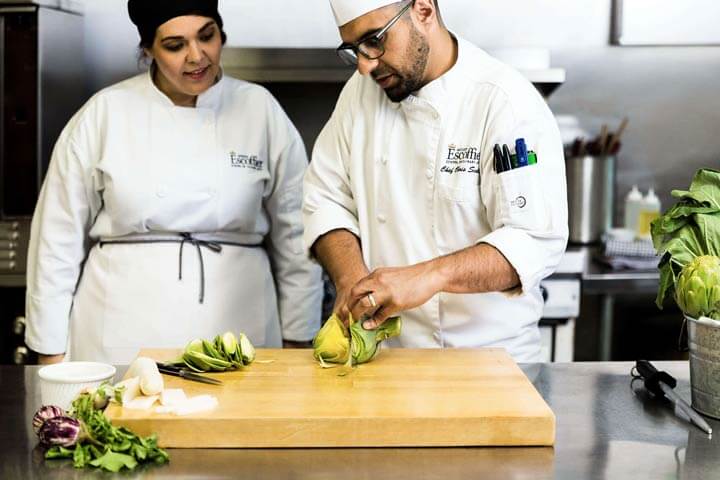
Students at Escoffier can explore a wide range of skills in the culinary arts.
3. Explore the School’s History and Philosophy
Although you’re focused on the future, it helps to know the history of the school you’re researching. What are its core principles and values, and do they jive with your own?
At Auguste Escoffier School of Culinary Arts, the lineage of finely trained chefs can be traced to the disciplined skills and techniques of Auguste Escoffier (1846 – 1935), the legendary French chef, visionary patriarch of modern cooking, and the namesake of our school.
Auguste Escoffier was an influencer a century before social media, introducing the world to concepts like a la carte dining and a brigade system of managerial hierarchy within a kitchen staff that is industry standard to this day. He taught more than 2,000 chefs during his career and cooked for the world’s celebrities and royalty, earning him the title “King of Chefs and Chef of Kings.”
Auguste Escoffier School of Culinary Arts continues that legacy with its emphasis on community, teamwork, and camaraderie. The environment is collaborative, rather than competitive, and it continues to be innovative.
The school also focuses on teaching students to assume roles of responsibility in the culinary and pastry arts, as well as hospitality. In addition to well-rounded culinary training, students can have an opportunity to receive a business and entrepreneurship foundation applicable to a variety of professional roles.
4. Look For a Learning Environment That is Accessible and Flexible
Accessibility and flexibility are key factors in a student’s likelihood to graduate. For some students, an online curriculum may fit better with their specific work or family obligations.
Students have two ways to attend Escoffier: via residential programs in Austin, Texas, and Boulder, Colorado, or online through our Boulder campus.
With Escoffier’s online programs, a quality culinary education is now an option available to thousands of students outside of major cities, who can’t necessarily uproot their lives. Online culinary school also allows those with full-time jobs or families to attend culinary school at a pace that suits their schedule.
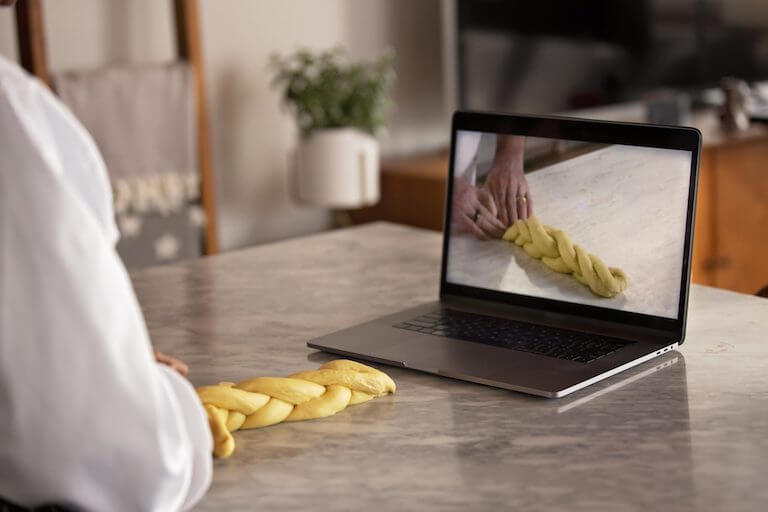
Online classes offer students the flexibility to take classes in locations and on a schedule that’s convenient.
5. Check Whether the School is Accredited
A school that is accredited has met measurable standards of quality as defined by a third-party agency. Additionally, students’ ability to receive federal financial aid depends on it. According to the federal Department of Education, “In order for students to receive federal student aid from the U.S. Department of Education (Department) for postsecondary study, the institution must be accredited by a ‘nationally recognized’ accrediting agency.”
Escoffer’s culinary school accreditations include the Austin campus being nationally accredited by the Council on Occupational Education (COE), and the Boulder campus (which includes online programs) being nationally accredited by Accrediting Council for Continuing Education and Training (ACCET).
Austin is approved and regulated by the Texas Workforce Commission-Career Schools and Colleges, and is authorized as an Associate of Applied Science degree–granting institution through the Texas Higher Education Coordinating Board. Programs are accredited by the American Culinary Federation (ACF) Educational Foundation Accrediting Commission.
The Boulder campus—through which the online programs are available—is approved and regulated by the Colorado Department of Higher Education (CDHE), Division of Private Occupational Schools. Escoffier has been approved by CDHE to participate in the National Council for State Authorization Reciprocity Agreements (NC-SARA).
The Diploma in Pastry Arts, Diploma in Culinary Arts, and Associate Degree in Culinary Arts (residential only) programs are accredited by the American Culinary Federation (ACF) Educational Foundation Accrediting Commission.
Escoffier is also a member of various professional organizations, including the International Association of Culinary Professionals (IACP); the World Association of Chefs Societies (WACS); the National Restaurant Association (NRA); and StateFoodSafety is an online food safety education company dedicated to educating the public about food safety and helping ensure the health of communities nationwide.
Find Out What Financial Aid is Available
Escoffier makes financial aid available to those who apply and qualify.
Aid can include Federal grants, federal student and parent loans, work-study programs, stipends, and other scholarships and grants. Escoffier also offers flexible payment plans. Active duty and veteran personnel, as well as certain family members, may be eligible for special grants, including Veteran Administration Benefits, Military Tuition Assistance, Yellow Ribbon Program, and more.**
To find out more, talk to a financial advisor.
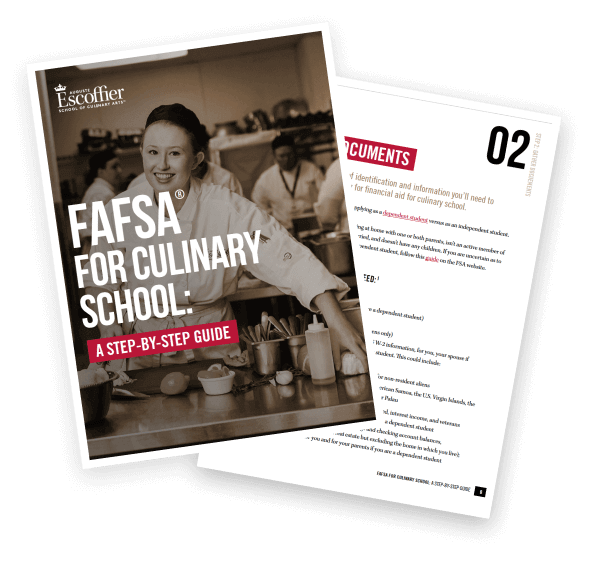
Get the Financial Aid Guide for Culinary School
The first step towards seeing if you qualify for financial aid for culinary school is completing the FAFSA®. Follow this essential guide and be on your way today!
6. Make Sure Students Get Real-World Experience
When you graduate from culinary school, it’s important that you’re able to bridge the gap between the learning environment and a working foodservice establishment. Real-world experience lets students get a look inside of a professional kitchen before their first day on the job.
Whether on campus or online, all Escoffier programs require students to complete at least one industry externship. This can give them the opportunity to get additional hands-on practice, see how a professional kitchen operates, and “try on” a position.
Our Career Services department works with students to help them decide what type of externship they’d like to pursue, and can connect them to potential externship opportunities.
Find Out Whether the School Can Guide Aspiring Business Owners
If you dream of opening your own restaurant or catering business one day, a culinary arts curriculum focusing on the kitchen’s business side can help you walk that path.
As new business models like food trucks and ghost kitchens continue to remove barriers to entry, the National Restaurant Association expects to see more food service entrepreneurs than ever in the coming years.
Some of Escoffier’s Culinary Arts programs include business-focused courses that can prepare students for industry challenges both in and out of the kitchen. The Technical Writing for the Hospitality Industry course, for example, can help students write clearly for training documents or standard operating procedures.
Associate Degree students also take Culinary Entrepreneurship, covering topics like business planning, credit management, and business ethics. They may also explore a business plan under the guidance of their experienced Chef Instructors.
7. Evaluate Whether the School Includes a Focus on Sustainability
Whatever path you choose, you’ll place your customers’ wants and needs front and center. And customers are increasingly interested in buying local, knowing the story behind the food, and what a business’ sustainability practices are. Industry experts expect that sustainability will continue to be a driving factor for restaurants in the years to come, with a focus on waste reduction and sustainably sourced products.
A culinary arts curriculum should reflect this shift, focusing on a sustainable supply chain and working with seasonal ingredients. Escoffier’s six-week Farm To Table® Experience helps aspiring chefs meet this need by highlighting the relationship between the chef and the farm or food supplier.
On-campus students get hands-on education with food producers like farmers or artisan makers of goods like wine, sausage, cheese, or beer. (Actual activities vary based on time of year, location, and availability of farmers and makers.)
Online students explore the benefits of buying local, different production methods, and the importance of sustainability in their own kitchens. Escoffier also hosts quarterly Farm-to-Table immersion programs, where online students have the opportunity to interact with the residential campus for an in-person, hands-on experience. (Does not lead to academic credit.)
From Curriculum to Career
Your journey in the culinary world is uniquely yours, so when you evaluate a culinary curriculum, it’s important to look for one that can best help you chart your path and that offers a variety of options. With programs in Culinary Arts, Baking & Pastry Arts, Hospitality & Restaurant Operations Management, and more, Escoffier can help prepare you for a wide range of culinary careers.
If you have any questions about the Escoffier curriculum, reach out to our admissions department for the answers!
FOR MORE INFORMATION ON CULINARY EDUCATION, CHECK OUT:
- 5 Culinary School Financial Aid Resources You May Not Know About
- Is a Culinary Diploma or Degree Worth it?
- How the Escoffier Alumni Association Can Transform Your Career Path
*Information may not reflect every student’s experience. Results and outcomes may be based on several factors, such as geographical region or previous experience.
**Financial aid is available for those who apply and qualify.
The original article ran Oct. 12, 2020, and has since been updated.

